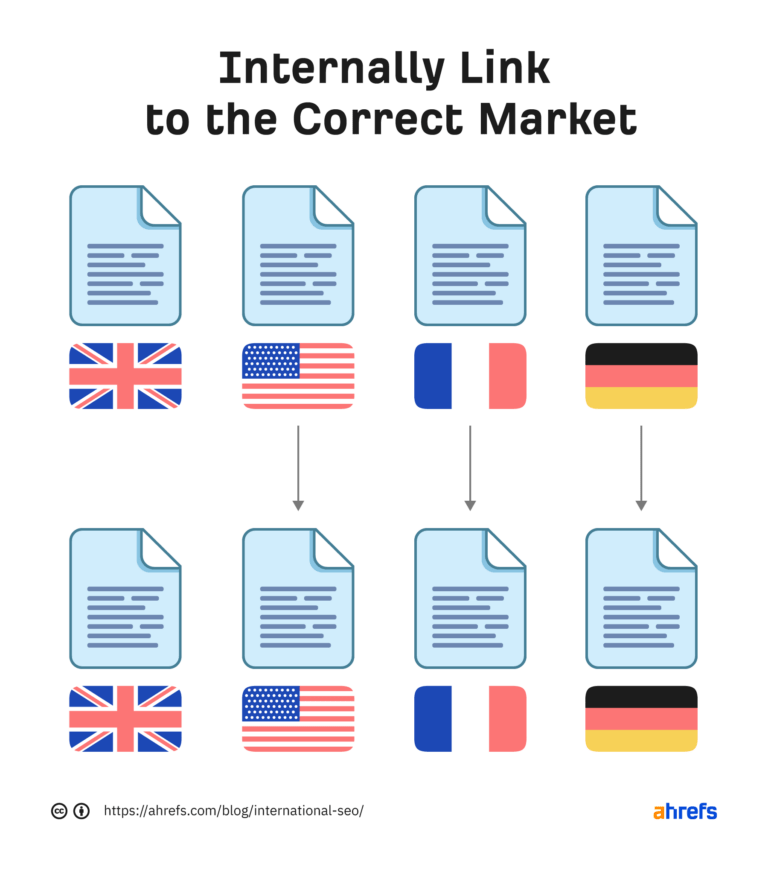Navigating the Digital Landscape: Leveraging International Search Engine Optimization for Cross-Border Success
In today's interconnected electronic globe, businesses are progressively looking past borders to use global markets. Leveraging search engine optimization (SEO) methods customized for global audiences is vital for accomplishing cross-border success. The complexity of navigating the digital landscape on an international range demands a nuanced approach, from recognizing the principles of International search engine optimization to implementing geotargeting and multilingual key words techniques. As firms make every effort to expand their reach and visibility across various regions, optimizing site frameworks and keeping track of cross-border efficiency ended up being indispensable parts of an effective worldwide search engine optimization method.
Comprehending International SEO Fundamentals
Browsing the intricacies of international SEO requires a solid understanding of basic concepts to properly increase on the internet exposure throughout boundaries. One important aspect of global SEO is understanding the significance of localization.
Furthermore, having a clear understanding of geo-targeting is essential. This entails showing to online search engine the certain nations or areas an internet site is targeting. Applying hreflang tags is one means to connect this details, guaranteeing that the right version of a webpage shows up in the search results page for a user in a specific place.
In addition, understanding the effect of regional search engines and social networks systems is crucial for international SEO success. While Google is leading in lots of regions, nations like China have their own search engines like Baidu, needing customized approaches for each platform to make best use of on the internet presence (International SEO).

Targeting Multilingual Keyword Phrase Methods
Developing multilingual keyword strategies is essential for effectively getting to diverse international target markets and making best use of on the internet exposure across various etymological regions. When targeting multilingual keyword strategies, it is important to perform thorough research to recognize the certain search terms and expressions used by the target market in each linguistic region. This entails not only converting keyword phrases yet additionally thinking about cultural nuances, regional languages, and search trends one-of-a-kind per target market.
To develop a successful multilingual key phrase method, it is vital to prioritize relevance and search intent. Key words need to align with the content on the web site and resonate with the cultural context of the target audience. Using tools such as Google Keyword Coordinator, SEMrush, or Ahrefs can aid determine high-performing search phrases in different languages and evaluate their search quantity and competitors level.
Moreover, monitoring and analyzing the performance of multilingual key words routinely is essential for optimizing and refining the technique over time. By constantly adapting to changes in search habits and trends, organizations can boost their online visibility and draw in more international website traffic to their internet sites.
Carrying Out Geotargeting and Hreflang Tags
When aiming to boost global search engine optimization methods, integrating geotargeting and hreflang tags is important for optimizing site visibility throughout different areas. Geotargeting includes customizing content to particular places, making sure that customers in different locations get pertinent information. By executing geotargeting, organizations can boost their local search rankings and attract region-specific website traffic.

Optimizing Site Framework for International Exposure
To even more boost global search engine optimization strategies beyond geotargeting and hreflang tags, maximizing the internet site framework is important for accomplishing worldwide presence and taking full advantage of reach throughout various areas. A well-structured website not only boosts customer experience but likewise promotes internet search engine spiders in recognizing the content and context of the site. When going for international presence, it is crucial to ensure that the internet site is organized in a logical way that satisfies users from various nations. Carrying out a clear power structure with unique groups and subcategories can aid in improving the site's navigation and user-friendliness.
Moreover, developing language-specific subdirectories or subdomains can assist online search engine deliver the appropriate version of the site to users based upon their language preferences, better improving the total helpful hints individual experience. Furthermore, optimizing link structures to consist of relevant keywords and geotargeted terms can improve the site's presence in various regions. By structuring the web site successfully for international audiences, organizations can raise their opportunities of bring in worldwide traffic and broadening their reach throughout boundaries.
Tracking and Examining Cross-Border Efficiency
Efficient monitoring and analyzing of cross-border efficiency is necessary for reviewing the success of international SEO strategies and identifying possibilities for improvement in international reach and exposure. By closely tracking key efficiency indicators (KPIs) throughout different markets, companies can gain useful understandings into the effectiveness of their cross-border SEO efforts. Keeping an eye on metrics such as natural web traffic, keyword positions, conversion prices, and bounce rates can supply a thorough view click for source of how well a website is executing in various areas.
Examining cross-border performance information allows organizations to recognize fads, patterns, and locations for optimization. By contrasting efficiency across various countries, regions, or languages, business can identify effective strategies and center material to better accommodate details target market. Additionally, checking cross-border efficiency makes it possible for companies to remain dexterous and receptive in the ever-evolving electronic landscape. Normal analysis of search engine optimization efficiency on a global scale makes certain that companies can adjust their techniques swiftly to take advantage of arising possibilities and keep an affordable edge in international markets.
Verdict
Finally, international SEO plays a vital role in accomplishing cross-border success by optimizing websites for worldwide presence, targeting multilingual key phrase methods, carrying out geotargeting and hreflang tags, and keeping track of cross-border efficiency. By recognizing the principles of international SEO and optimizing internet site frameworks appropriately, organizations can successfully content get to and involve with their target market across different areas and languages. This calculated technique is vital for expanding market reach and driving online growth in today's electronic landscape.